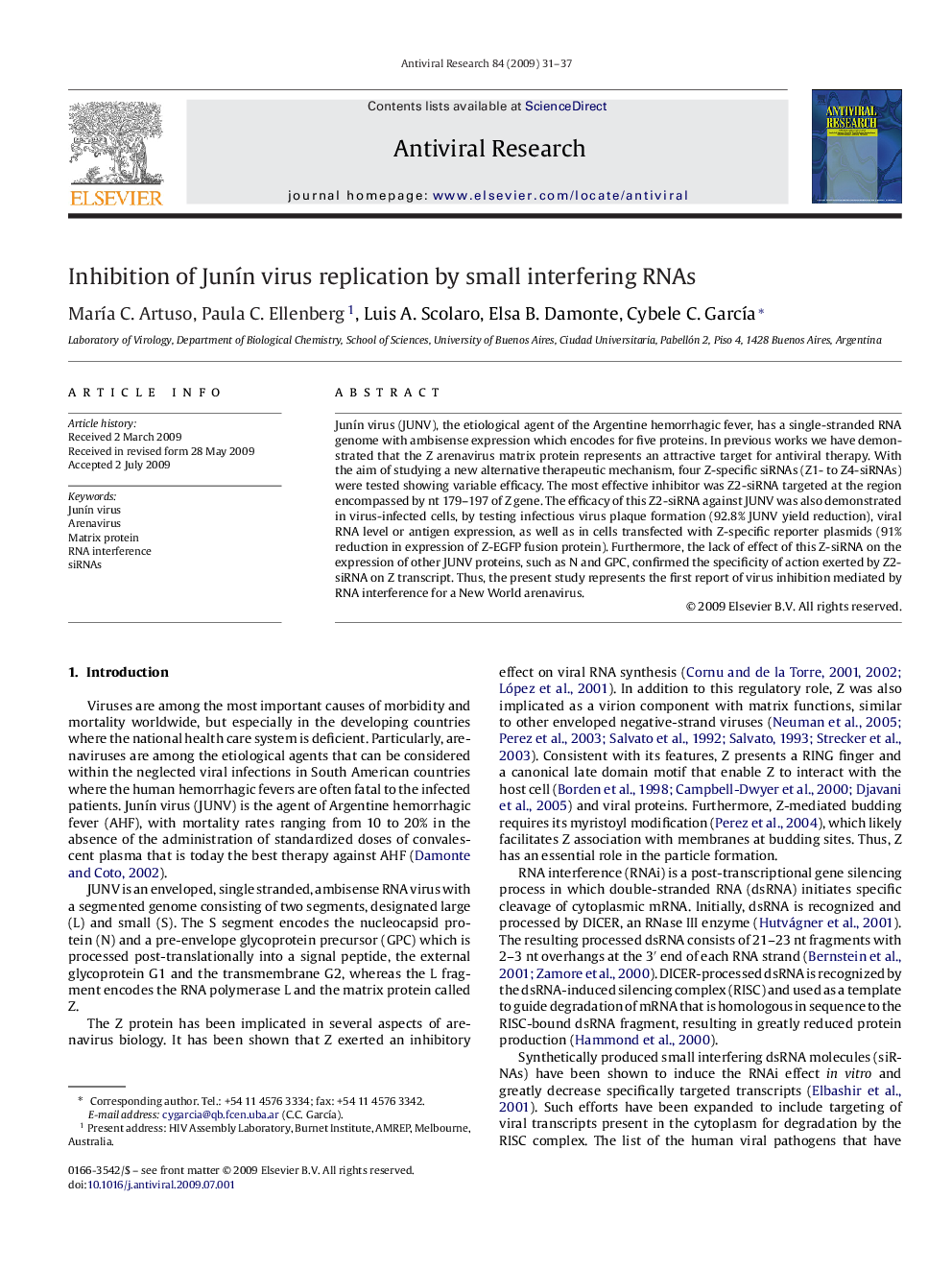| کد مقاله | کد نشریه | سال انتشار | مقاله انگلیسی | نسخه تمام متن |
|---|---|---|---|---|
| 2510606 | 1117976 | 2009 | 7 صفحه PDF | دانلود رایگان |

Junín virus (JUNV), the etiological agent of the Argentine hemorrhagic fever, has a single-stranded RNA genome with ambisense expression which encodes for five proteins. In previous works we have demonstrated that the Z arenavirus matrix protein represents an attractive target for antiviral therapy. With the aim of studying a new alternative therapeutic mechanism, four Z-specific siRNAs (Z1- to Z4-siRNAs) were tested showing variable efficacy. The most effective inhibitor was Z2-siRNA targeted at the region encompassed by nt 179–197 of Z gene. The efficacy of this Z2-siRNA against JUNV was also demonstrated in virus-infected cells, by testing infectious virus plaque formation (92.8% JUNV yield reduction), viral RNA level or antigen expression, as well as in cells transfected with Z-specific reporter plasmids (91% reduction in expression of Z-EGFP fusion protein). Furthermore, the lack of effect of this Z-siRNA on the expression of other JUNV proteins, such as N and GPC, confirmed the specificity of action exerted by Z2-siRNA on Z transcript. Thus, the present study represents the first report of virus inhibition mediated by RNA interference for a New World arenavirus.
Journal: Antiviral Research - Volume 84, Issue 1, October 2009, Pages 31–37